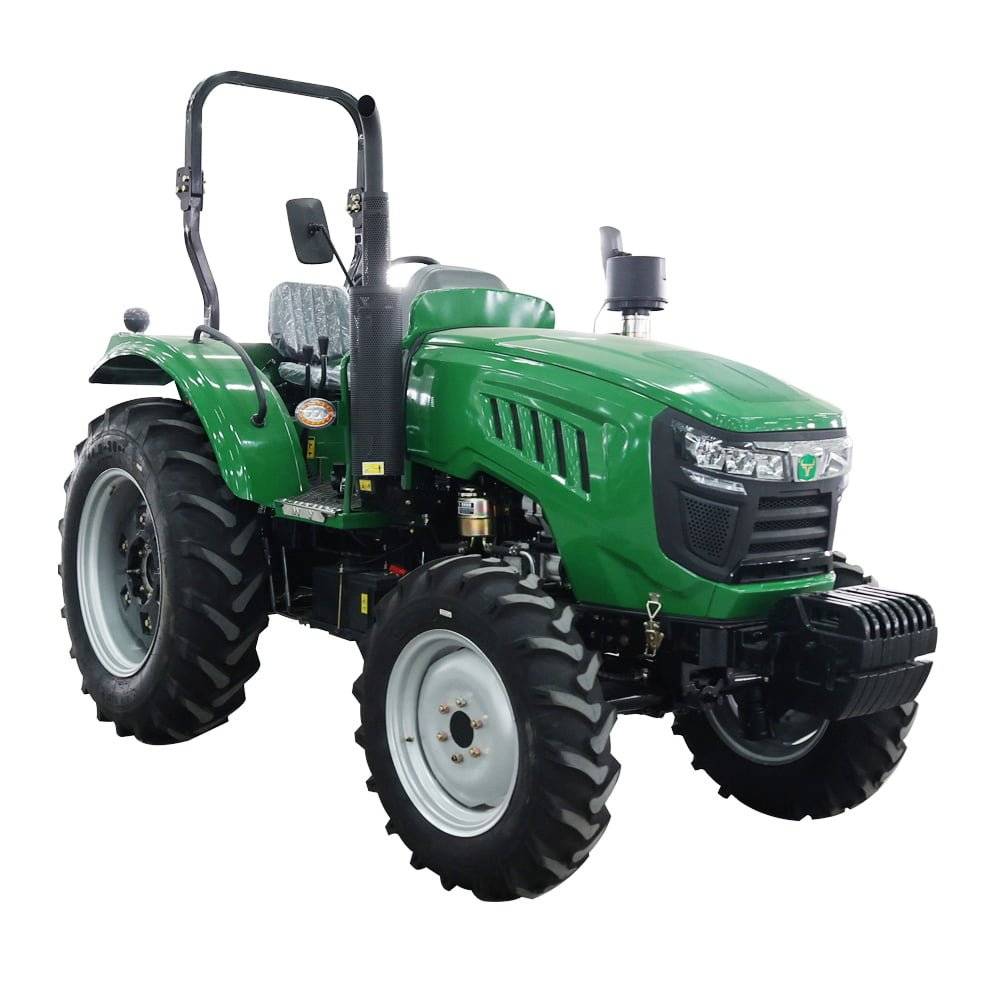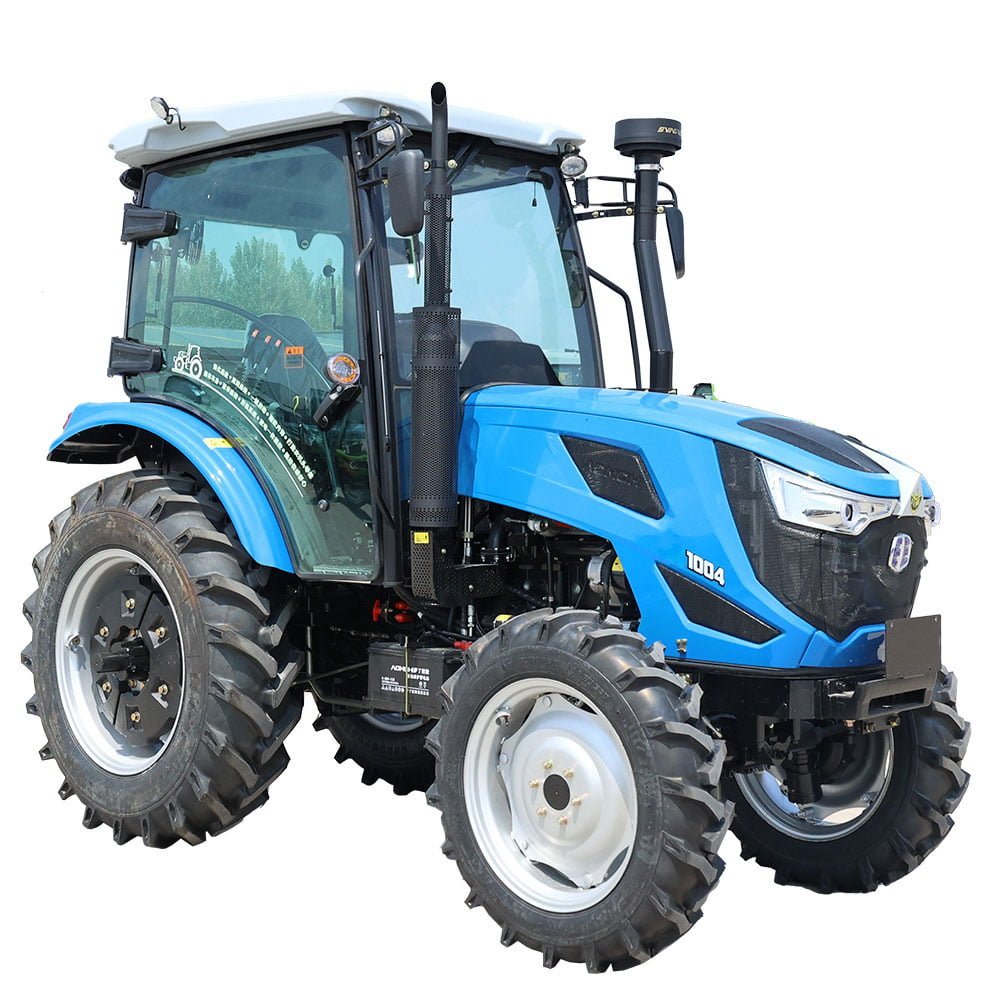In the modern era of agriculture, farm tractors are both indispensable tools and sources of environmental concern. While these powerful machines have revolutionized farming and significantly boosted productivity, they also leave a notable footprint on the environment. In this comprehensive 8000-word article, we will explore the multifaceted environmental impact of farm tractors, addressing key issues related to emissions, fuel efficiency, sustainability, and potential solutions.
Introdução
Farm tractors have played a pivotal role in the transformation of agriculture, making it more efficient and productive. However, their environmental impact has raised important questions about sustainability and the need for eco-friendly alternatives. This article will explore various facets of the environmental impact of farm tractors:
Emissions and Air Quality
Farm tractors are primarily powered by diesel engines, which emit pollutants harmful to both human health and the environment. We will delve into the types of emissions produced by tractors and their effects on air quality.
Fuel Efficiency and Consumption
The fuel efficiency of farm tractors has a direct impact on their carbon footprint. We will examine the factors influencing fuel consumption and explore ways to improve tractor efficiency.
Opções de combustível sustentáveis
With the growing emphasis on sustainability, we will discuss alternative fuel options for tractors, including biodiesel, electric, and hydrogen-powered tractors, and evaluate their environmental benefits.
Precision Agriculture and Reduced Chemical Usage
Modern tractors have adopted precision agriculture techniques, which can reduce the need for chemical inputs such as fertilizers and pesticides. We will assess how this approach affects the environment.
Soil Compaction and Erosion
The weight and size of farm tractors can contribute to soil compaction and erosion, which have detrimental effects on soil health and the environment. We will explore methods to mitigate these issues.
Noise Pollution
Farm tractors are often associated with noise pollution, which can impact both rural communities and wildlife. We will discuss the sources of tractor-related noise and potential solutions.
Technological Innovations and Sustainability
Advancements in technology have led to innovations that can reduce the environmental impact of tractors. We will explore how features like GPS guidance and telemetry systems are being used for sustainable farming.
Regulatory Measures and Policy Initiatives
Government regulations and policies play a significant role in addressing the environmental impact of farm tractors. We will examine existing regulations and emerging initiatives aimed at reducing tractor emissions and promoting sustainability.
Perguntas frequentes
Q1. How do trator emissions contribute to air pollution?
A1. Tractor emissions release pollutants like nitrogen oxides (NOx) and particulate matter (PM) into the air, contributing to poor air quality and health problems.
Q2. Are electric tractors a more environmentally friendly option?
A2. Electric tractors produce zero tailpipe emissions, making them a greener option. However, the environmental impact depends on the source of electricity used for charging.
Q3. How can precision agriculture reduce chemical usage and benefit the environment?
A3. Precision agriculture allows for precise application of inputs like fertilizers and pesticides, reducing overuse and minimizing chemical runoff into water bodies.
Q4. What measures can farmers take to reduce soil compaction caused by tractors?
A4. Farmers can use tire technology, reduce axle loads, and adopt controlled traffic farming practices to minimize soil compaction.
Q5. Are there noise regulations for farm tractors?
A5. Noise regulations for farm tractors vary by region. Some areas have noise limits for agricultural machinery.
Q6. What role can government policies play in mitigating tractor-related environmental impact?
A6. Government policies can incentivize the adoption of cleaner technologies, set emission standards, and promote sustainable farming practices through subsidies and regulations.
Q7. Can older tractors be retrofitted with eco-friendly technologies?
A7. Retrofitting older tractors with eco-friendly technologies like emission control systems and GPS guidance is possible in some cases, but it may not be cost-effective for all models.
In conclusion, farm tractors are integral to modern agriculture, but their environmental impact cannot be ignored. Addressing the ecological footprint of tractors requires a multifaceted approach, involving technological innovations, sustainable fuel options, regulatory measures, and conscientious farming practices. As the agricultural industry continues to evolve, striking a balance between productivity and environmental stewardship remains a critical challenge.







-1.png)